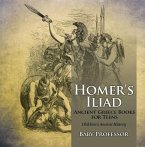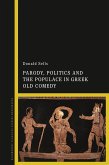In this new volume, Jan Haywood and Naoíse Mac Sweeney investigate the position of Homer's Iliad within the wider Trojan War tradition through a series of detailed case studies. From ancient Mesopotamia to twenty-first century America, these examples are drawn from a range of historical and cultural contexts; and from Athenian pot paintings to twelfth-century German scholarship, they engage with a range of different media and genres.
Inspired by the dialogues inherent in the process of reception, the book adopts a dialogic structure. In each chapter, paired essays by Haywood and Mac Sweeney offer contrasting authorial voices addressing a single theme, thereby drawing out connections and dissonances between a diverse suite of classical and post-classical Iliadic receptions.
The resulting book offers new insights, both into individual instances of Iliadic reception in particular historical contexts, but also into the workings of a complex story tradition. The centrality of the Iliad within the wider Trojan War tradition is shown to be a function of conscious engagement not only with Iliadic content, but also with Iliadic status and the iconic idea of the Homeric.
Inspired by the dialogues inherent in the process of reception, the book adopts a dialogic structure. In each chapter, paired essays by Haywood and Mac Sweeney offer contrasting authorial voices addressing a single theme, thereby drawing out connections and dissonances between a diverse suite of classical and post-classical Iliadic receptions.
The resulting book offers new insights, both into individual instances of Iliadic reception in particular historical contexts, but also into the workings of a complex story tradition. The centrality of the Iliad within the wider Trojan War tradition is shown to be a function of conscious engagement not only with Iliadic content, but also with Iliadic status and the iconic idea of the Homeric.









